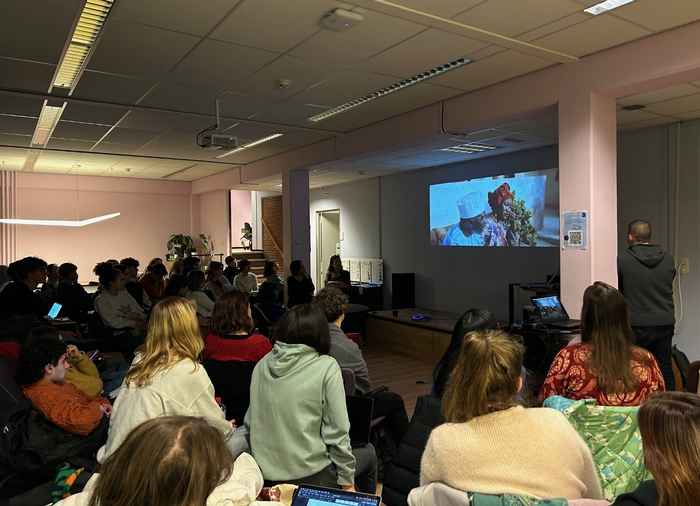What does it mean to be a ‘desirable’ migrant?
27 November 2023

Parvati Raghruma and Maitet Ledesma
Speakers Parvati Raghuram of The Open University and Maitet Ledesma of IBON Foundation Europe, drew on their expertise as an academic researcher and community organizer, respectively, to provide diverse interpretations on what constitutes a ‘desirable’ migrant. The discussion revolved around what it means to be desirable across different contexts: desirable by whom, and to what end?
Desirability of a migrant
Parvati connected a migrant's desirability to their perceived level of ‘skill’, noting that host countries desire migrants based on their ability to contribute to the economy. Maitet extended this by prompting us to reflect on the ‘features’ that deem our smartphones a desirable commodity and arguing that a migrant’s desirability is determined through a similar logic, wherein ‘skills’ can be measured as ‘features’. But, as she aptly states, “people are not commodities”. This rhetoric strips migrants of their dignity and humanity, reducing them to their value as a commodity in the marketplace.
Gifts from Babylon
The panel discussion also featured the first half of Gifts from Babylon, a short film produced by Emiel Martens, to represent migrants’ lived experience, and their desire for recognition and rights. The film stars Christopher Tijan Smith, an asylum seeker based in the Netherlands from Gambia. Upon returning to Gambia, there is a clip where his barber says, “If we all leave through the backway, Africa will lose its cream!” This quote reveals the multiple layers of desirability. In the context of migration politics, its power of definition resides within the host countries that govern a migrant’s life. But a person’s desirability can never be decided in such absolute terms, and it is our collective responsibility to push back and challenge this rhetoric.
Emphasis on solidarity
In the group discussion that ensued, emphasis was placed on solidarity, and ways to foster community between the various actors working and living in migration related concerns. It provided an inspiring end to a discussion on a topic that is otherwise so fraught and divisive in popular discourse.
The event was organised by Kidjie Ian Sanguin and Maggi Leung.